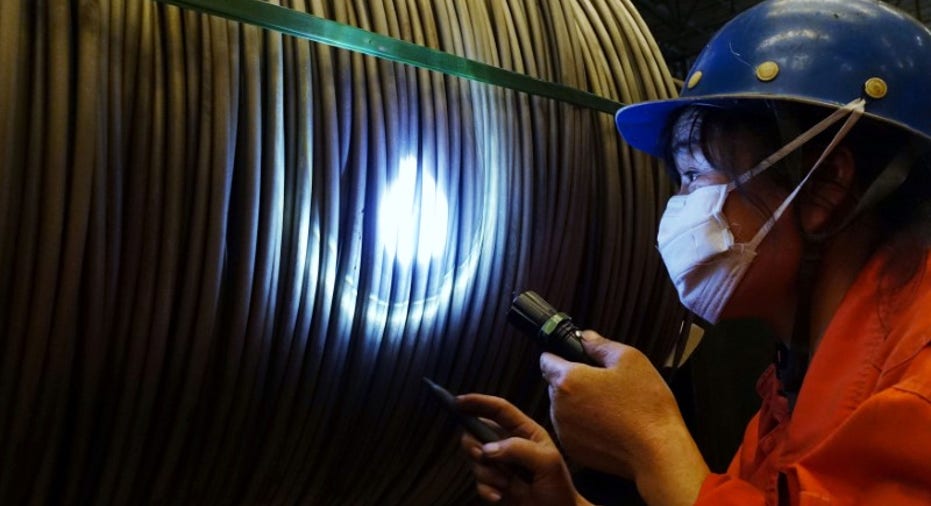China September factory activity expands marginally as orders edge up-Caixin PMI

BEIJING – China's factory activity expanded in September as domestic and export orders picked up but the improvement was marginal and manufacturers continued to shed jobs, a private business survey showed on Friday.
The Caixin/Markit Manufacturing Purchasing Managers' index (PMI) rose to 50.1, in line with analysts' forecasts and slightly higher than August's no-change mark of 50.0, which separates expansion of activity from contraction on a monthly basis.
The reading has bounced around the neutral 50 level for the best part of five years, pointing to stubbornly sluggish demand.
Output expanded in September, but at the slowest pace in three months, the survey showed.
Overall new orders also continued to show modest growth, with new orders edging into expansionary territory after nine months of contraction.
Despite easing to its slowest for nine months, the rate of job shedding remained marked overall. Around 8 percent of companies surveyed reported lower headcounts, with a number of firms attributing the fall to cost-cutting.
But companies were able to pass along higher input costs and raise selling prices of their goods by a sharper pace than in August, suggesting they were regaining pricing power.
"The readings for the manufacturing PMI over the past three months seem to indicate that the economy has begun to stabilize," Zhengsheng Zhong, director of macroeconomic analysis at CEBM Group, said in a note accompanying the PMI report.
A construction boom fueled by government infrastructure spending and a housing market rally have helped to underpin growth in the world's second-largest economy in recent months, though small and mid-sized private firms like those which dominate the Caixin survey have continued to struggle.
Profits earned by China's industrial firms grew the fastest in three years in August with rising sales, higher prices and reduced costs, official data showed on Tuesday.
China's imports also unexpectedly rose in August for the first time in nearly two years, suggesting domestic demand may be picking up. Exports fell at a less than expected extent and showed signs of improvement, with demand from the United States, Japan and European Union all improving.
But the Commerce Ministry warned on Thursday that downward pressure on China's trade is growing due to various destabilizing factors, and said weak global demand is "impossible" to reverse fundamentally this year, though January-August trade figures showed positive signs.
Zhong also cautioned that an increasingly strained fiscal budget could pose a risk to sustainable growth.
"Given that the growth rate of fiscal income has slowed recently while expenditures have swung, there is insufficient momentum to drive future economic growth, and there is a risk that industrial output may decline," Zhong said.
China will release its official factory and service sector activity readings on Oct. 1.
(Reporting by Yawen Chen and Nicholas Heath; Editing by Kim Coghill)
((Yawen.Chen@thomsonreuters.com; +86 10 6627 1207))



















